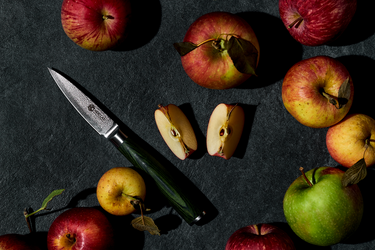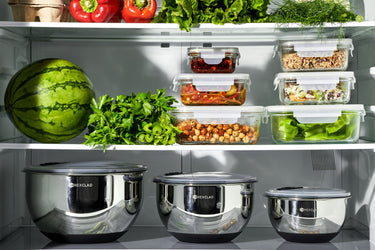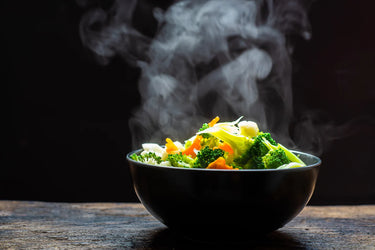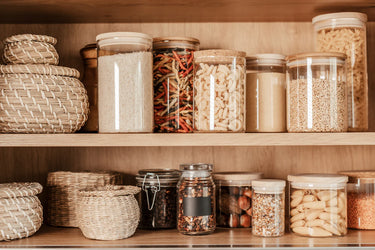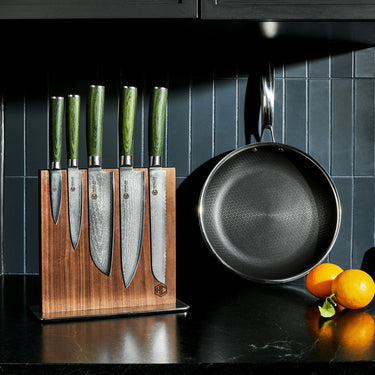How To Cook the Perfect Burger With Gordon Ramsay
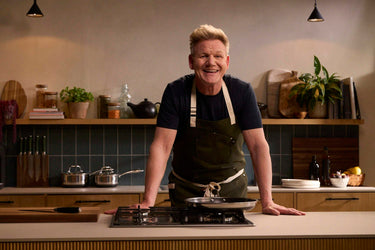
As food innovation progresses, a new kind of burger seems to crop up pretty much all the time — turkey burgers, chicken burgers, lamb burgers, and veggie burgers are becoming more and more prominent.
But let’s face it. There’s one universal truth that must be acknowledged — it just doesn’t get better than a classic ground beef or ground chuck burger.
You can enjoy a delicious, juicy burger in a high-class gastropub, or home cooks can toss it on a charcoal grill for an unforgettable 4th of July cookout. You can use whatever toppings you like, or even prepare them ahead of time and create a toppings bar for your guests to choose what they want. Ketchup, BBQ sauce, and Worcestershire sauce are a few favorites to spread on the top bun, and we’ll cover some more toppings later in this article.
What Is Gordon Ramsay’s Recipe for the Perfect Burger?
We’ve covered the basics — now let’s get into the real meat of it all. Here’s how to make the world’s best burger, according to Chef Ramsay himself.
It’s All About the Color
The key to an incredible burger is all in the color — and the key to achieving great color is a great pan and a great sear.
You need a pan that will heat quickly and evenly, ensuring that each part of your burger cooks at the same rate. Otherwise, some areas of the patty will overcook while others are still getting to temp — and this will most definitely keep you from achieving the perfect, pro-chef sear.
HexClad pans heat evenly every time, and their hybrid design and hexagonal pattern make for a nonstick cooking experience that slides right out of the pan. No matter what you’re searing or sautéeing, HexClad has you covered.
To start off, heat your pan on medium-high, allow the pan to get hot, and add some olive oil. Then, place your hamburger patty in the center of the pan and let that beautiful sear come to life.
Season Your Patty
This principle applies to all kinds of cooking, but you want to season your components every single step of the way. A burger that only has proper seasoning on one side will taste inconsistent and lackluster.
The last thing you want is for some bites to taste just right while others are completely flavorless or downright too salty. To avoid this, evenly season both sides of your burger with salt and black pepper (and any other seasonings you like).
The same rule also applies to any veggies you put in the pan. For instance, if you choose to add red onions, take the time to season them. Each ingredient needs to be able to stand on its own so that you never get one bite that tastes vastly different from the rest. A truly perfect burger will taste perfect in every bite.
You can also add seasonings like onion powder, garlic powder, or paprika — however, Gordon recommends keeping it simple and letting the flavor of the grilled burger speak for itself. After all, a perfect burger doesn’t need all that seasoning in order to shine.
Only season one side of the patty for now, since the other side will be facedown in the pan. Not to worry — you’ll get the chance to season the other side in a few short steps.
Add a Touch of Butter to the Pan
Once the patty is seasoned to your liking, add a pat of butter to the pan. Including a bit of extra fat content brings a burst of flavor to your burger, so this is a step that you certainly shouldn’t miss.
Just under a tablespoon of butter should do the trick, keeping in mind that you’ll use that melted buttery goodness to baste the patty later.
Start on Medium-Heat, Then Reduce
By now, the entirety of the pan has reached a high temperature, as have the patty and the butter. That heat will continue to cook the meat but keep in mind that overcooking can happen in the blink of an eye.
To avoid this rookie mistake, turn down the heat so that the burger doesn’t lose its juice while cooking.
Cook for Two Minutes Per Side
An average-sized burger will need about two minutes on each side to be properly cooked.
That said, this can vary somewhat depending on the thickness of your burger patties and your desired level of doneness (medium rare, medium well, etc.). For instance, a smash burger is characterized by the thinness of the patty, so it will get a nice sear even faster than a regular burger.
If you prefer to use a meat thermometer, your burger should reach 160 degrees Fahrenheit internally.
Flip Once and Let It Caramelize
Learning to be patient in the kitchen takes time.
The truth is that most of us have a tendency to check on our patties before we flip them. And that hesitation and indecision can interrupt the beautiful browning process happening between the burger and the pan.
Flip your burger only one time — with confidence — and let it caramelize.
Baste Your Patty and Add More Butter
While the bottom side of the patty is caramelizing and browning, it’s time to give the other side some love, too. You can add flavor and juiciness to the center of the burger while also aiding in the cooking process by basting.
Grab a metal spoon and slightly tilt the pan toward you to accumulate the liquid and make it easy to scoop. HexClad’s pans are metal utensil-safe, making them the perfect companion to your favorite kitchen tools.
Carefully ladle some of that liquid into the spoon, then set the pan back flat and pour that juice over the burger.
This juice will consist of olive oil, melted butter, and runoff from the burger, and we want all of those components to get right back into the burger where they belong. Only do this a few times, and then it’s time to flip your burger over.
Using a spatula and your hand to steady the burger, flip your patty in a smooth, controlled motion.
Note: Be careful! The burger will be very hot — if you have sensitive fingertips, you can reach for another cooking utensil in place of using your fingers.
This time, place your burger toward the side of the pan so that there’s space remaining. Once the burger is flipped, add another pat of butter to the pan.
Caramelize Some Onions in the Same Pan
The last step calls for moving the burger off-center in order to make room for some onions. Onions can also be enjoyed raw as a topping, but briefly caramelizing them in a pan will add a deeper complexity that ties your burger together.
Lay your onions flat in the pan, taking care not to overcrowd them. Season them with a pinch of salt and freshly cracked black pepper. Wait until they become fragrant and the underside begins to brown, then flip them over.
Toast Your Bun
The burger is the absolute star of the show, but the right hamburger bun can make or break it. You need a substantially dense bun, or it might not hold up to your burger's weight and toppings.
Carefully cut the bun in half if it’s not in half already, then place each half of the bun onto the toasting surface of your choice with the cut side down.
The goal is a slightly crispy bun that adds a delicious textural contrast to the juiciness of the burger. Leave your bun alone for now and return your attention to the patty.
Season Before and After Adding Cheese
Since the burger has been flipped, it’s once again time to season it. Season the remaining side with salt, pepper, and your other spices of choice. This time, though, you shouldn’t add quite as much as you did to the other side.
Then, it’s time for cheese — Gordon Ramsay’s burger recipe comes to completion with two slices of cheddar cheese.
Place one slice of cheese on top of your patty, then lightly season the cheese itself. This may come as a surprise, but seasoning your cheese adds the perfect extra oomph of flavor.
Once that’s done, add another slice of cheese, and lightly season it again. You want each component of the cheeseburger to be delicious on its own, but make sure not to overseason.
Turn off Your Heat and Cover the Pan
At this point, your burger is about done cooking, and your onions are mostly caramelized. All that’s left to do in the pan is to melt the cheese. You can accomplish this by putting a lid on the pan and turning off the heat.
The lid will trap the residual heat in the pan, and this is plenty to melt the cheese while preventing your burger from overcooking.
Add Your Toppings and Assemble
To make a proper Gordon Ramsay-style hamburger, smear some mayonnaise onto the bottom bun. Then, put down a leaf of butter lettuce. Season the lettuce with just a pinch of salt and pepper.
Next up are tomato slices — put down enough to properly cover the burger and bun in one to two layers tops.
On the top bun, spread some dijon mustard to add some sharpness. Put down some pickles to lend some acidity to the finished dish.
At last, you can remove the lid from your pan and take a look at the finished patty.
By now, the cheese should be perfectly melted. Place the cheeseburger on the bed of lettuce, tomato, and pickles. Finish it off with the caramelized onions, put the top bun in place, and it’s ready to eat.
“That Is a Burger To Die For.” – Gordon Ramsay
Gone are the days of amazing burgers that can only be found in restaurants. With the right cookware and the right technique, you can make a burger to die for in the comfort of your own home.
Sources:
Ground Chuck vs. Ground Beef: 4 Key Differences | MasterClass
